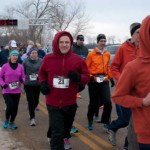Report on the Food Self-Sufficiency in the Peace Community
Click here for the Peace Community Financial Report on Freeze for Food Donations Read More »
Click here for the Peace Community Financial Report on Freeze for Food Donations Read More »
This edition of our CSN Newsletter reports on activities of our April delegation to the Peace Community of San Jose … Read More »
(Translated by Eunice Gibson, CSN Volunteer Translator) Sent from the Peace Community of San José de Apartadó On Sunday, March … Read More »
The Board of Directors of the Colombia Support Network sent the following letter to the Hon. Luis Carlos Villegas, Minister … Read More »

On January 23, 2016, the Returned Peace Corps Volunteers of Madison and the Colombia Support Network are co-sponsoring the 35th … Read More »
Near the end of the 1980’s, the selective assassinations of activists, union leaders, journalists, lawyers and campesinos were reaching a new height and CSN had just recently been founded in Madison, Wisconsin. From the beginning, the organization decided to focus on the creation of sister community relationships between U.S. communities and Colombian communities in zones of conflict. At the time, Colombians told us the place where the most people were being killed was in the banana-growing region of Apartadó. We visited the city and the mayor’s office, where the Unión Patriótica was in power. They welcomed the sister-community initiative. When Dane County, of which the city of Madison is a part, made the relationship official by a resolution of the County Board, the Apartadó Municipal Council responded in kind with its own resolution.
We began establishing relationships with different sectors within the community by reaching out to artists, environmentalists, teachers, campesino communities, union leaders and others. Little by little, the leaders of all of these sectors were targeted and killed by paramilitary forces with which the Colombian Army collaborated. When representatives of CSN returned to visit many of the community leaders were no longer living. Many of those killed were fervent members of the Unión Patriótica, which was very active in the region. One area where the Patriotic Union had been strong, the peasant community of San José de Apartadó, responded in 1997 to the threats and violence by declaring itself a “Peace Community” practicing non-violent resistance. It was the first rural community in Colombia to do so, and continues to serve as a model to other communities facing similar threats. After 40 paramilitaries had dragged 4 leaders of the community’s Balsamar Cooperative from their homes and decapitated them, the frightened campesinos met with church leaders and decided to declare their community to be a Peace Community. During a solemn mass on Palm Sunday in 1997 the community established its core principles: non-violence, to work on community projects, to seek justice in the face of impunity, to refuse to participate in the war, to neither own nor use guns, to not allow itself to be manipulated or collaborate with any armed actors, and to seek a negotiated solution to the conflict.
The region of Apartadó is of strategic importance because it is a point of entry and exit for both legal and illegal products. The number-one export of the region is bananas. Years later, that which leaders of the Peace Community had been telling CSN delegations—that the owners of banana plantations were paying paramilitaries a sum of money for each crate of bananas—would be publicly verified.
Cacao is another agricultural product of the region and two examples of contraband constantly passing through the region are weapons and cocaine. Also, government studies have shown that there are large coal deposits in the region.
The Peace Community is not only a territory, but also a political entity and a cooperative of campesinos selling their products. As a territory, it signifies a neutral geographic region surrounded by a raging war. As a political entity, it seeks to establish power in numbers—not only power to stand up to the armed actors, but also to stand up to their hierarchical and discriminatory way of life. The community is democratically run, creating an alternative to a way of life where arms and economic power rule. It seeks to solve problems through dialogue and collective initiatives rather than resorting to violence.
Naturally, the armed actors of the conflict did not accept this type of “neutrality.” A community that refuses to supply any information or food, and denies them entry into their territory represents an unexpected threat. The army and paramilitaries, therefore, decided to destroy the community; and the FARC turned them into a target because the Peace Community would not sell them food or provide them with information. The Inter-American Commission spoke up in favor of the community, demanding that the government respect and protect the lives of its members. In April of 2004, the Constitutional Court of Colombia passed decision T-558/03, recognizing the Colombian Government’s obligation to comply with the Commission’s directives.
In spite of all this, terror and impunity continue to reign. The conduct of the Seventeenth Brigade of the Colombian Army controlling the region is particularly notorious. The threats made by its officers are constant, and torture, sexual assault, robbery, illegal detentions and patrols with paramilitaries continue. The multi-national corporation Chiquita Brands paid banana companies to maintain control of the region through the use of paramilitaries. The heroic resistance of the Peace Community is an example to the world of perseverance in the face of extreme adversity.
CSN-Madison maintains constant communication with the Peace Community, organizes visits there each year, launches urgent actions, puts the community in contact with Colombian and international organizations, and ensures that U.S. politicians remain abreast of the situation. And CSN through community outreach in Madison co-sponsors with the local Returned Peace Corps Volunteer organization an annual fundraiser—a footrace. Money raised at the event goes toward funding food projects.